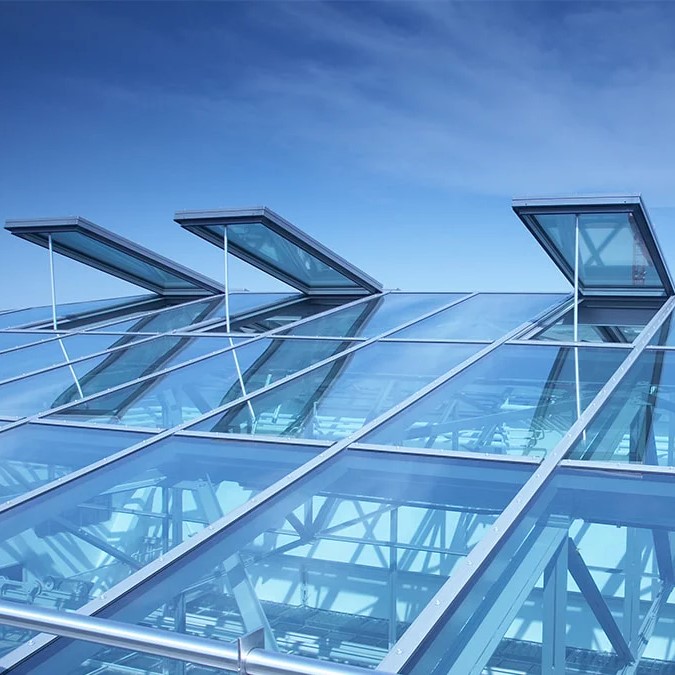How to Choose
Clear Roofing Sheets
Your complete guide to clear and translucent roofing options
– from glass, to acrylic, polycarbonate, multi-wall and more!
Do you want a clear or translucent roof over your deck, pergola, spa pool, BBQ, or other outdoor area? Are you struggling to decide on which type of material and structure to go for?
There are lots of different options, from cheap PVC to top end glass, and everything in-between. This guide is designed to help you decide how to choose which type of translucent roofing you need.
We go through all the options available, along with handy videos to help you see exactly how each clear roofing product works.
Check out our full video guide below, or keep scrolling for more details on each roofing product.
PVC Roofing Sheets
PVC sheets are an entry level roofing option and generally the cheapest translucent roofing you can get.
The usually have a 2-5 year warranty and because of this, are used for temporary structures.
They’re opaque so you can’t see through them, but they still let light through.
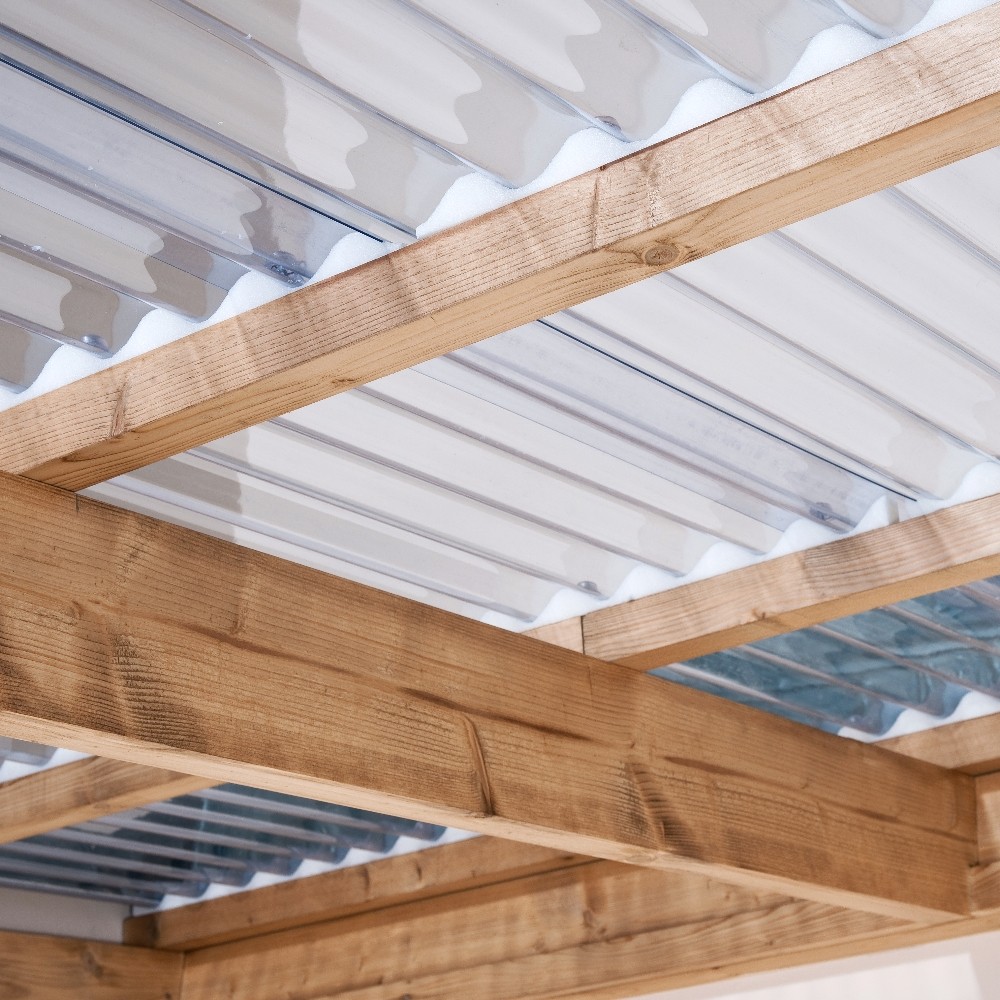
Polycarbonate Roofing Sheets
Entry level profiled polycarbonate roofing is much better than PVC as it is stronger, has better UV protection, and can come in clear.
They generally have a 10 year warranty. They’re easy to install and are the most commonly used type of translucent roofing.
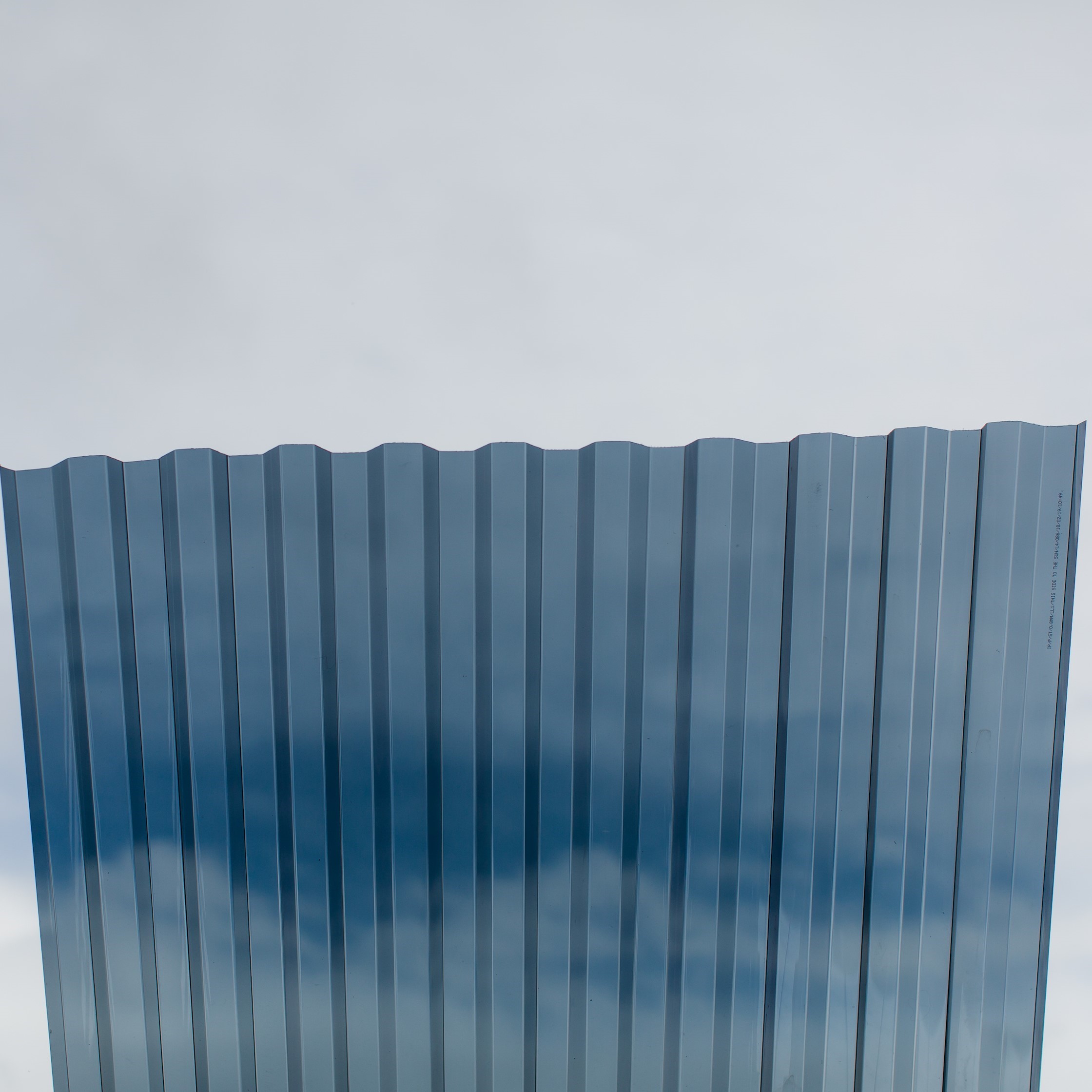
Premium Polycarbonate Roofing
These are better than the entry level profiled polycarbonate roofing. They usually come in more colours, different profiles (including ones with flat ribs) and can sometimes have heat protective coatings.
They generally have a 12-30 year warranty and a thicker UV coating.
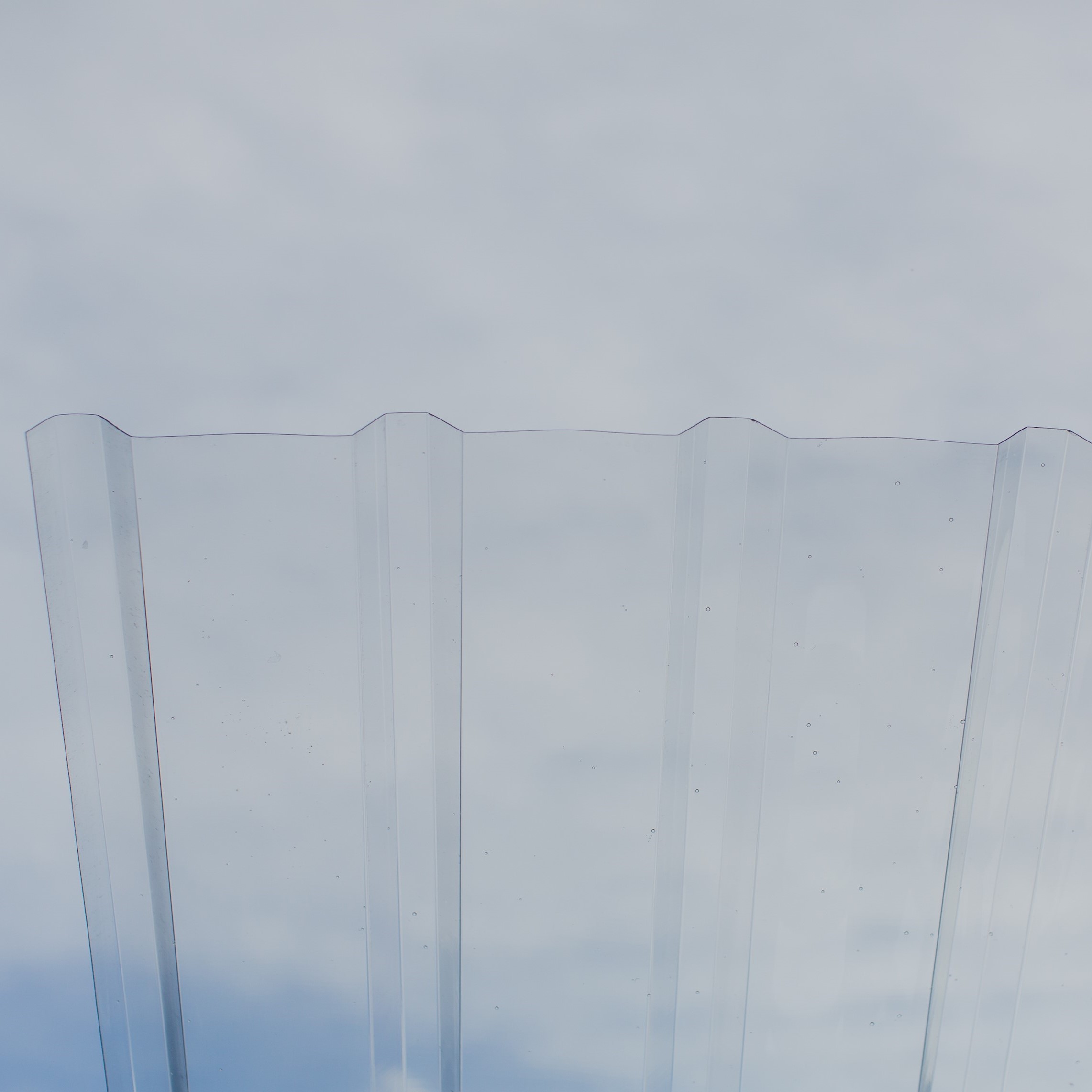
Twinwall Polycarbonate Roofing
Twinwall is a double walled (multi-wall) polycarbonate sheet used for roofing or cladding.
Because of its double wall, it acts like double glazing and reduces condensation. It has a nice flat look and generally a 10-15 year warranty.
It’s easier to keep clean but a bit more complicated to install.
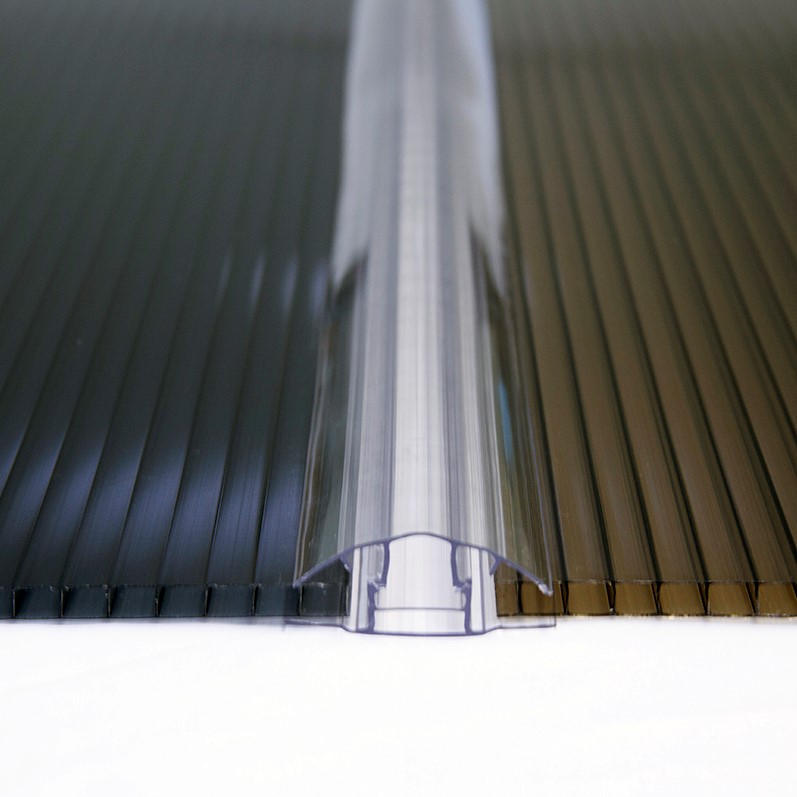
Fiberglass Roofing
Fiberglass roofing is an industrial acrylic roofing with fiber-glass through it.
It’s very tough and has a long lifespan. Because of this, it’s commonly used on industrial or commercial buildings. It also diffuses the light nicely into warehouses or other working areas. It’s not completely clear so is generally not used residentially.
They have a 15-30 year warranty.
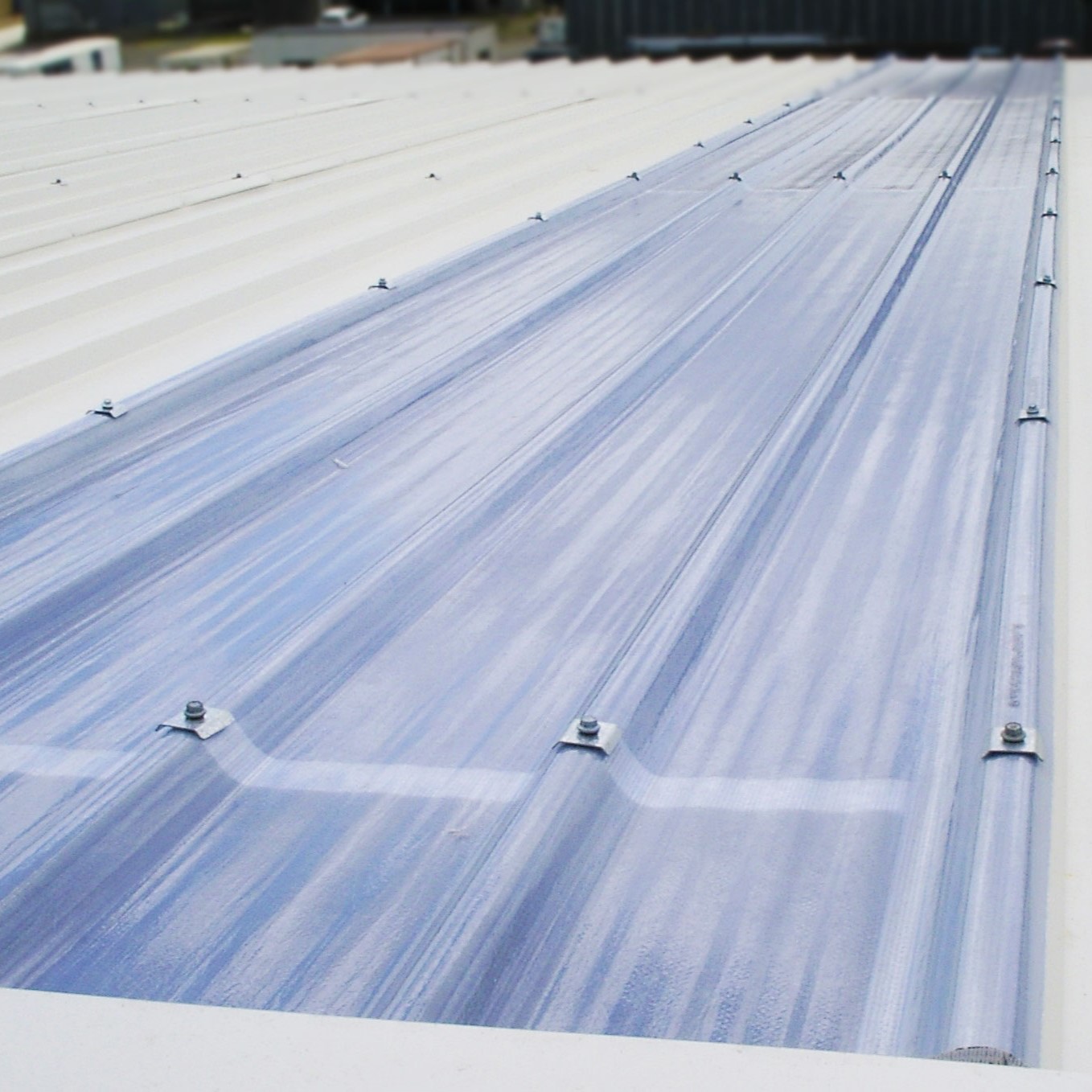
Semi-Flat Polycarbonate Roofing
Semi-flat roofing is polycarbonate roofing that has a large flat pan, with ridges on each edge of the sheet.
It’s designed to look like pure flat roofing, but is much easier to install as it doesn’t require glazing beams, it just overlaps. It’s also thinner so is quite a bit cheaper than solid acrylic or polycarbonate.
Because it’s thinner, it may flex a bit more than flat solid roofing.
It’s easier to keep clean than corrugated roofing and has up to a 30 year warranty.
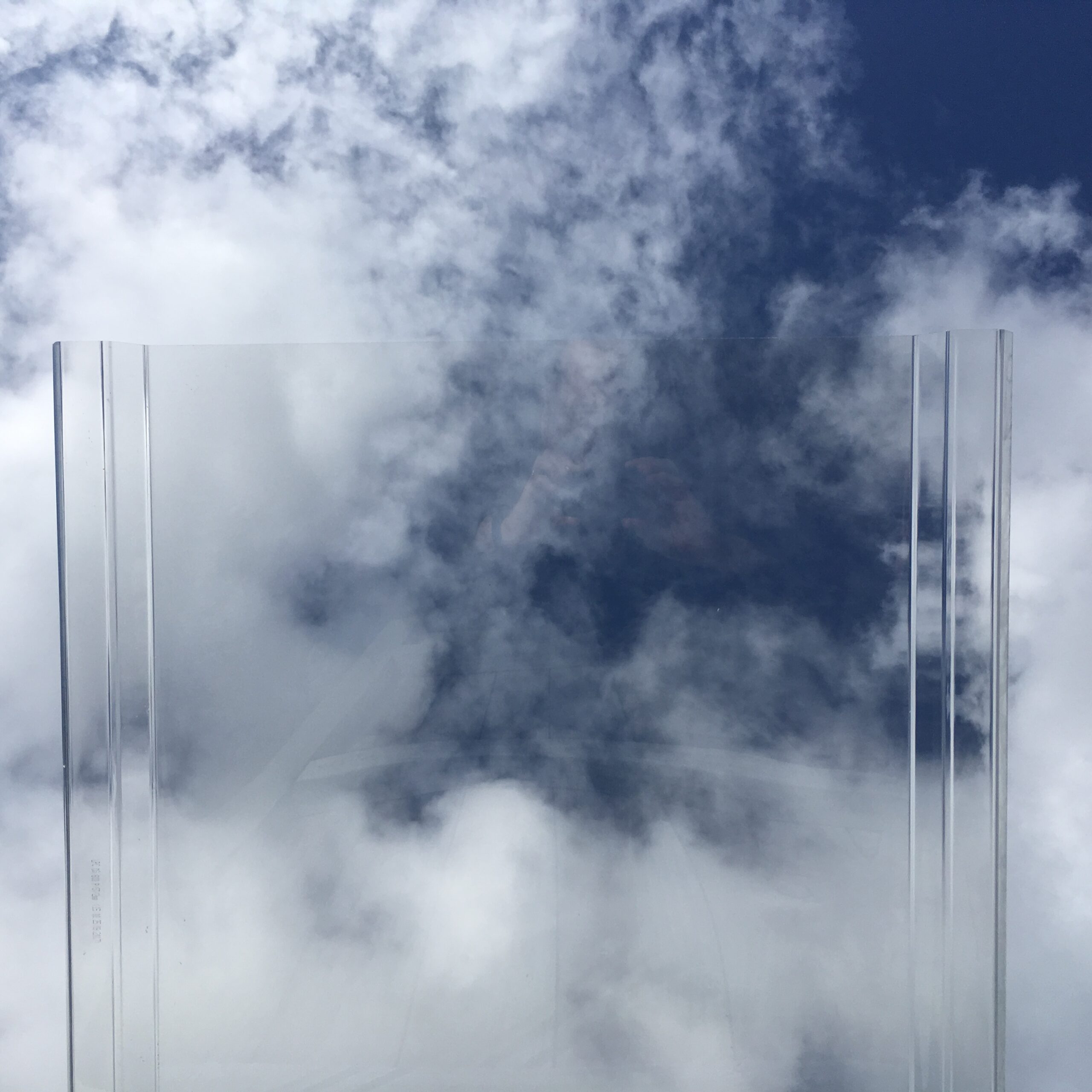
Flat Polycarbonate or Acrylic
This is the thickest, best looking (and most expensive) plastic roofing option.
They’re at least 6mm and are completely flat. They look great and are easier to keep clean.
They’re a bit more complicated to install as they require glazing bars.
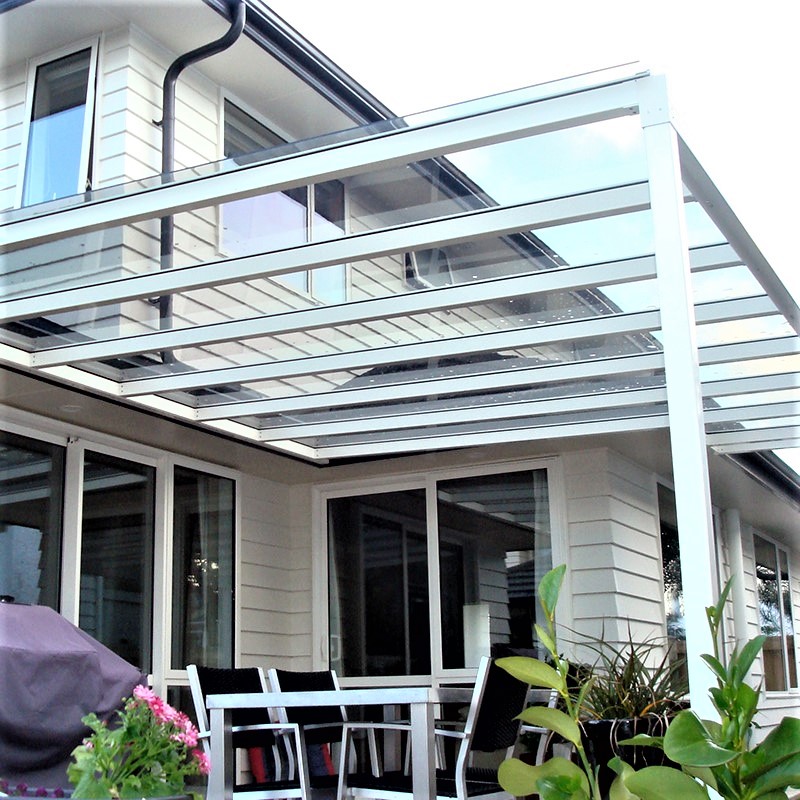
Glass Roofing
Glass roofing is the most ideal (and longest lasting)clear roofing you can get. However it is quite a different product from plastic, polycarbonate or acrylic roofing and has a different set of considerations.
It is heavy, easy to break, and can be dangerous if not installed correctly. Because of this, it’s not commonly used on residential projects.
It’s very expensive mainly due to the engineering fees and construction of the supporting structure.
